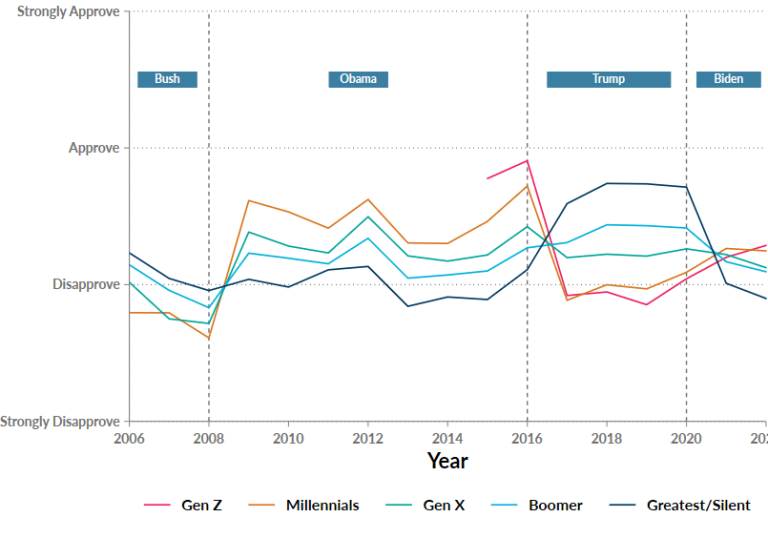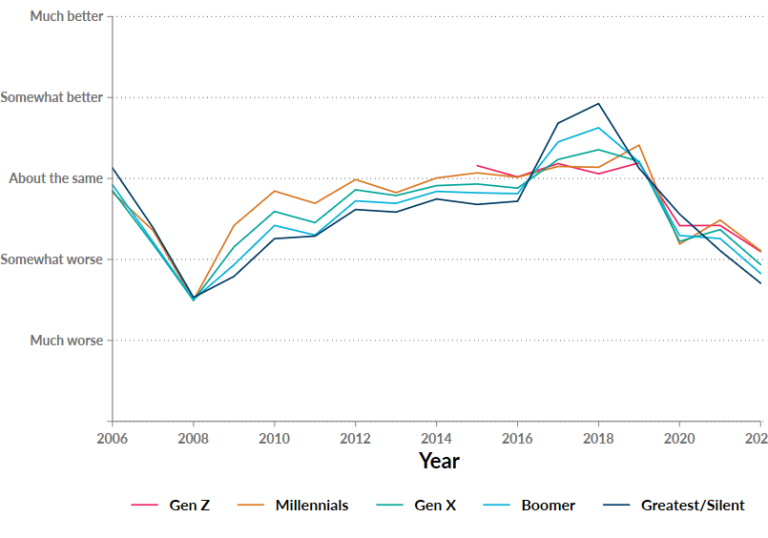Abstract
Evidence has been accumulating for years that Millennials and Gen Zers are coming of age in the 21st century with unique attitudes and outlooks that differ from older age cohorts, but less is known about the deeper value orientations that underlie their attitudes and outlooks. This study fills a gap in the literature by drawing on Cultural Theory to study generational culture, and in particular, the value structure of Millennials and Gen Zers in comparison to older age cohorts. This analysis presents a cohort analysis of cross-sectional survey data collected in the spring of 2020 to measure how values differ by generation as well as how generational values may differ by demographic characteristic and ideology. Among the main findings, I find that Millennials/Gen Zers are descriptively more egalitarian and fatalistic than older age cohorts, with measurably elevated levels of fatalism in comparison to older generations. The analysis also uncovers notable generational differences by demographic, especially by race. I find that older cohorts of people of color are more likely to be egalitarian in comparison to their white counterparts, whereas younger generations are more individualistic and hierarchical in comparison to the white members of their generation. Lastly, the results show a surprising degree of ideological value polarization by generation, with the values of young adults from across the ideological spectrum more compressed than among the older age cohorts, whose values are much more polarized.










